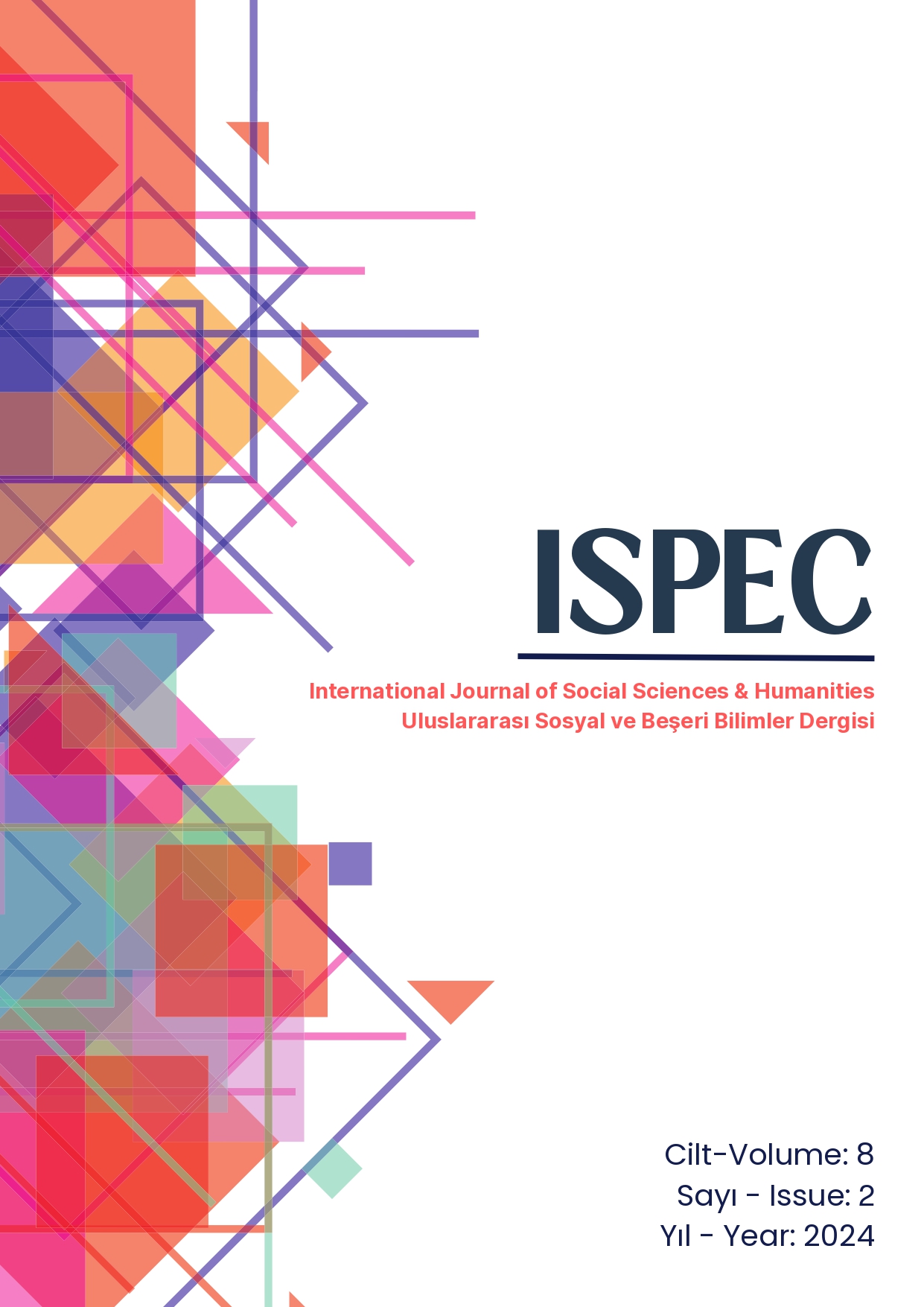Cognitive Behavioral Therapy in Social Anxiety Disorder: A Case Report
DOI:
https://doi.org/10.5281/zenodo.12511830Keywords:
social anxiety disorder, cognitive behavioral therapy, anxietyAbstract
The study was carried out considering the DSM-V diagnostic criteria. The client showing symptoms is 23 years old and female. Interviews with the client were conducted according to the cognitive behavioral therapy approach. The client stated that he does not feel comfortable in crowded places, he thinks that everyone is looking at him, and that he experiences difficulties in his daily life. She said that she feels a lot of anxiety in the classroom environment, crowded places and public transportation. She stated that she experienced palm and back sweating, increased heart rate, rapid breathing, tremors and high anxiety in these environments. She realized that she was trying to live a limited life, away from crowded places and people. The client applied for treatment at his own request. The client was first given psychoeducation about CBT. Then, information was given about social anxiety disorder. Information was given about what social anxiety disorder is, how it occurs, and coping techniques. An attempt was made to establish a therapeutic relationship with the client. A total of 5 interviews were held with the client. The duration of each meeting is 50 minutes. The interviews were conducted in collaboration with the client. Throughout the psychotherapy process, cognitive and behavioral methods appropriate to the client were used. As a result of the interviews with the client, it was observed that cognitive behavioral therapy applications significantly reduced the symptoms of social anxiety disorder. For this reason, CBT is an effective method in the treatment of social anxiety disorder.
References
Ahi, S., & Yurtseven, C.S. (2022). Sosyal fobide bilişsel davranışçı terapi tedavi ve teknikleri: Bir olgu sunumu. Akademik Sosyal Araştırmalar Dergisi,10(132),326-346. http://dx.doi.org/10.29228/ASOS.63795
Altınışık, B., & Hacıömeroğlu, A. B. (2022). Sosyal kaygı bozukluğunun bilişsel davranışçı terapi açısından değerlendirilmesi. Bilişsel Davranışçı Psikoterapi ve Araştırmalar Dergisi, 11(3), 274-284. http://doi.org/10.5455/JCBPR.111233
Bilge, Y., Gül, E., & Birçek, N. I. (2020). Bir sosyal fobi vakasında bilişsel davranışçı terapi ve sanal gerçeklik kombinasyonu. . Bilişsel Davranışçı Psikoterapi ve Araştırmalar Dergisi, 9(2), 158-165. http://doi.org/10.5455/JCBPR.61718
Dilbaz, N. (1997). Sosyal fobi. Psikiyatri Dünyası,1, 18-24.
Dilbaz, N. (2000). Sosyal anksiyete bozukluğu: Tanı, epidemiyoloji, etiyoloji, klinik ve ayırıcı tanı. Klinik Psikiyatri,2, 3-21.
Doğan, T., & Okumuşoğlu, S. (2022). Toplumsal kaygı bozukluğu olan yetişkin bireylerde bilişsel davranışçı grup terapilerinin etkililiği: Bir sistematik gözden geçirme. LAÜ Sosyal Bilimler Dergisi, 13(1), 19-39.
Fıstıkçı, N., Keyvan, A., Erten, E., Duran, Ş., & Sungur, M.Z. (2015). Sosyal anksiyete bozukluğunda bilişsel davranışçı terapi: Güncel kavramlar. Psikiyatride Güncel Yaklaşımlar,7(3), 229-243. https://doi.org/10.5455/cap.20140719110703
Kermen, U., & Erden, S. (2019). Bilişsel davranışçı yaklaşım temelli bir psikolojik danışma programının ergenlerin sosyal fobi ve mizah düzeylerine etkisi. Mersin Üniversitesi Eğitim Fakültesi Dergisi, 15(3), 831-844. https://doi.org/10.17860/mersinefd.536697
Kermen, U., İlçin Tosun, N., & Doğan, U. (2016). Yaşam doyumu ve psikolojik iyi oluşun yordayıcısı olarak sosyal kaygı. Eğitim Kuram ve Uygulama Araştırmaları Dergisi, 2(2), 20-29.
Köse, S., & Çetinkaya, R. (2021). Bilişsel davranışçı psikoterapi: Bir derleme çalışması. Mersin Üniversitesi Eğitim Bilimleri Enstitüsü. https://www.academia.edu/95655576
Özdikmenli Demir, G. (2009). Sosyal fobinin etiyolojisinin incelenmesi amacıyla gerçekleştirilen araştırmalara genel bir bakış. Akademik İncelemeler Dergisi, 4(1), 101-123.
Özer, Ö., & Yalçın, İ. (2020). Bilişsel davranışçı terapiye dayalı psiko-eğitim programının üniversite öğrencilerinin sosyal anksiyete düzeylerine etkisi. Uluslararası Karamanoğlu Mehmetbey Eğitim Araştırmaları Dergisi,2(2), 161-168. https://doi.org/10.47770/ukmead.788859
Öztürk, A. (2014). Sosyal Kaygıyı Açıklayan Yaklaşımlar. Elektronik Sosyal Bilimler Dergisi,13(48), 15-26. https://doi.org/10.17755/esosder.86289
Türkçapar, M.H. (1999). Sosyal Fobinin Psikolojik Kuramı. Klinik Psikiyatri, 2, 247-253.
Yalçın, M., & Tekinsav Sütcü, S. (2016). Yetişkinlerde sosyal fobinin tedavisinde bilişsel davranışçı grup terapisinin etkililiği: Sistematik bir gözden geçirme. Psikiyatride Güncel Yaklaşımlar, 8(1), 61-78. https://doi.org/10.18863/pgy.28154
Downloads
Published
How to Cite
Issue
Section
License
Copyright (c) 2024 ISPEC International Journal of Social Sciences & Humanities

This work is licensed under a Creative Commons Attribution-NonCommercial-NoDerivatives 4.0 International License.






